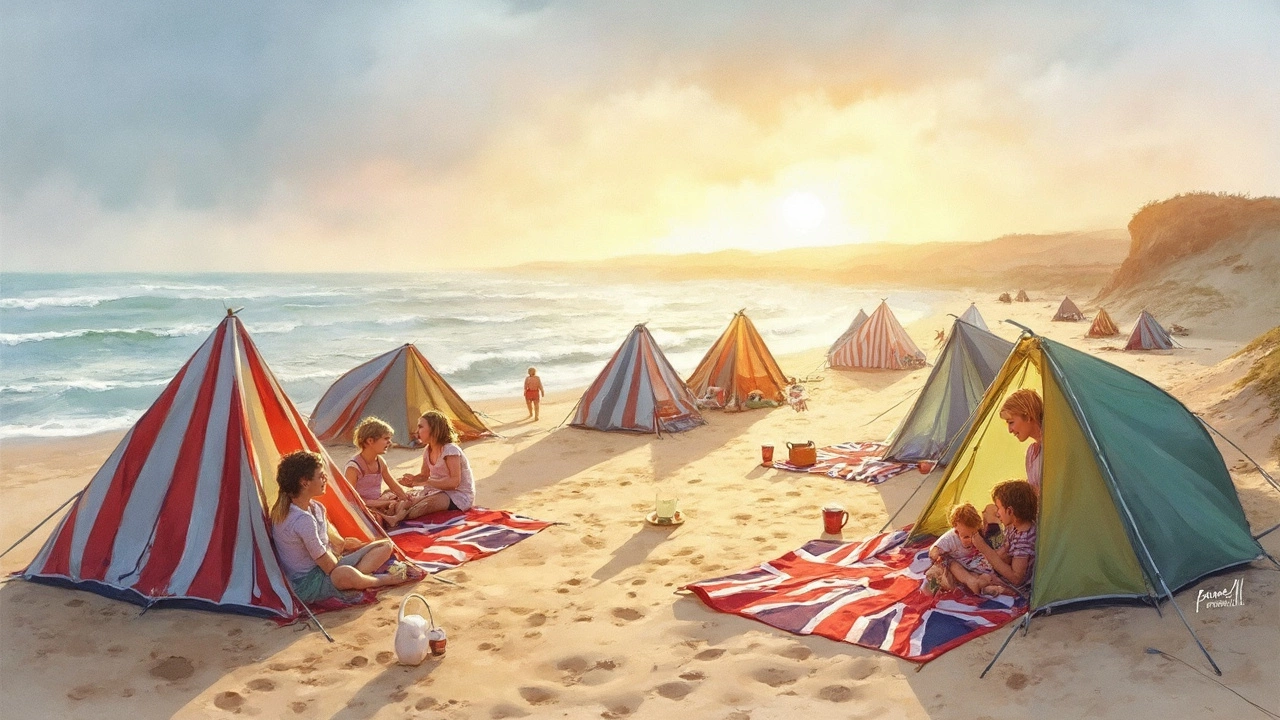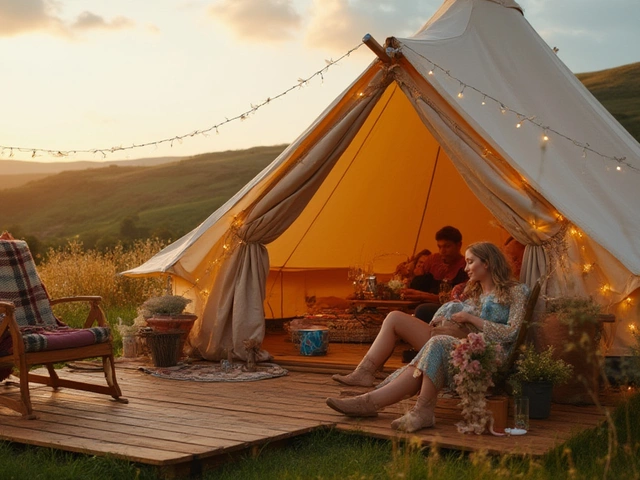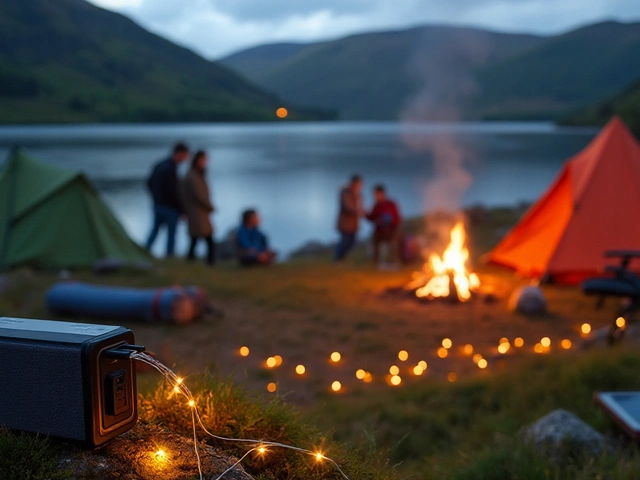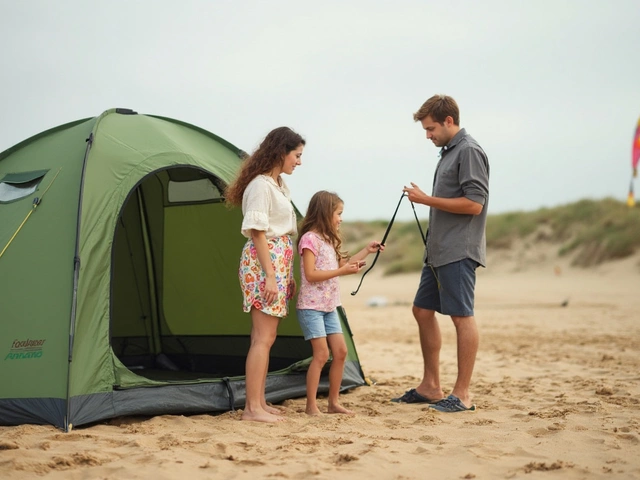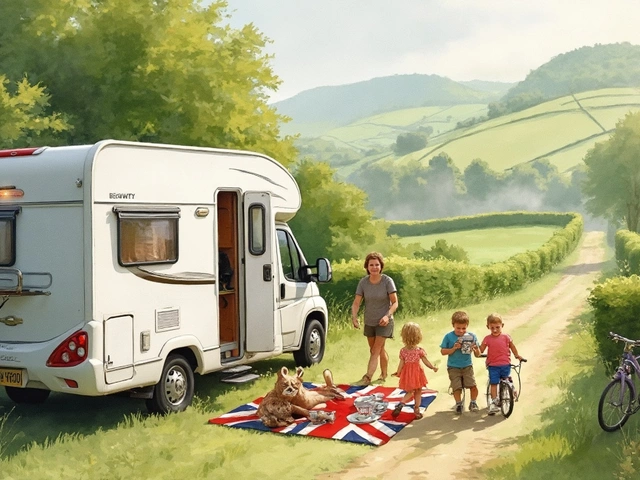Imagine waking up to the sound of the waves—honestly, it's tough to beat. That’s a big reason why people pack up their gear and head straight for a sandy spot by the sea. There's something about sleeping just steps from the shoreline that feels both wild and relaxing all at once.
On top of that, setting up camp at the beach is a different vibe from pitching your tent in the woods or mountains. At the beach, you’ve got built-in activities: swimming, surfing, beach combing, or just flopping down with a good book. Plus, the fresh, salty air seems to melt away stress better than any spa day. Kids like Larkin (my kid) will run themselves ragged, worn out from building epic sandcastles and chasing waves. No WiFi required.
- What Draws People to Beach Camping?
- Beach Campsites vs. Other Campsites
- Top Tips for a Great Beach Camping Experience
- Staying Safe and Respecting Nature
What Draws People to Beach Camping?
The first thing most folks mention about beach camping is the simple freedom. No walls, fresh breeze, and the ocean right outside your tent—it's a way to unplug fast. That’s probably why beach campsites fill up fast for holidays and long weekends, especially in places like California, Florida, and the Carolinas. In fact, state parks near popular beaches often report fully booked beach campsites months ahead of summer.
It’s not just the scenery. Beach campsites give families and groups a built-in playground. Surfers get early access to uncrowded waves at sunrise. Kids and adults dig for crabs, toss Frisbees, or go on spontaneous shell hunts. If you’re a night owl, the dark, open sky sets up some of the best stargazing around—way better than what you see in most backyards. And unlike forests where bugs or thick brush can be a bother, a lot of people find beach air is less buggy.
Some beach campers are drawn by cost. Compared to oceanfront hotels, beach camping is seriously affordable. Even the highest-demand state beach sites rarely cost more than $60 a night and plenty are under $40. Here’s a quick look at typical beach campsite prices compared to hotels:
| Type of Stay | Average Nightly Cost (USD) |
|---|---|
| Beach Campsite | $35–$60 |
| Mid-range Beach Hotel | $120–$250 |
| Luxury Beach Resort | $300+ |
The sound of the ocean has a real calming effect—sleep experts actually say this kind of natural white noise helps people fall asleep faster and stay asleep longer. And if you fish, you’re only steps from the water—no 4 a.m. alarms or fighting traffic. So, beach camping is more than just sticking a tent on the sand. It’s about chasing good weather, fun, and reset for your mind. That’s a hard combo to beat.
Beach Campsites vs. Other Campsites
The biggest difference with beach campsites is, obviously, the sand and the ocean. But it's more than just a change of scenery. Everything from the weather and gear to the routine feels different by the shore compared to your classic forest or mountain spot.
For starters, you won't find much shade or wind protection at the beach. That means you need tents that can handle gusts and are easy to anchor in the sand (not dirt or grass). Beach tents usually have pockets to fill with sand or heavier stakes designed for soft ground. Standard tent pegs just don’t cut it here.
Restroom access and water sources can be limited too. Some popular beach camping spots have showers, bathrooms, or even food shacks, but plenty are wild and primitive—so you have to pack in water and haul out trash. It’s a bit more like roughing it. In contrast, many forest or RV campsites have fire rings, picnic tables, and even power outlets.
The activities are also different. At beach campsites, you can swim, fish, surf, snorkel, or just hang by the water. That’s a big switch from hiking or birdwatching you’d find inland. The wildlife is different, too—think crabs, sandpipers, dolphins, and seagulls, instead of squirrels or deer.
Here's a quick look at how they stack up:
| Feature | Beach Campsites | Forest/Mountain Campsites |
|---|---|---|
| Typical ground | Sand, sometimes rocky | Dirt, grass, packed earth |
| Common activities | Swimming, surfing, sunbathing | Hiking, mountain biking, campfires |
| Shelter needs | Sand stakes, wind-rated tents | Standard stakes, less wind prep |
| Facilities | Sometimes minimal, primitive toilets | Often have water, restrooms, fire pits |
One more thing—beach camping can be brutal on your gear. Salt and sand get everywhere, and things like zippers corrode faster. Rinsing and cleaning everything when you get home is just part of the deal.
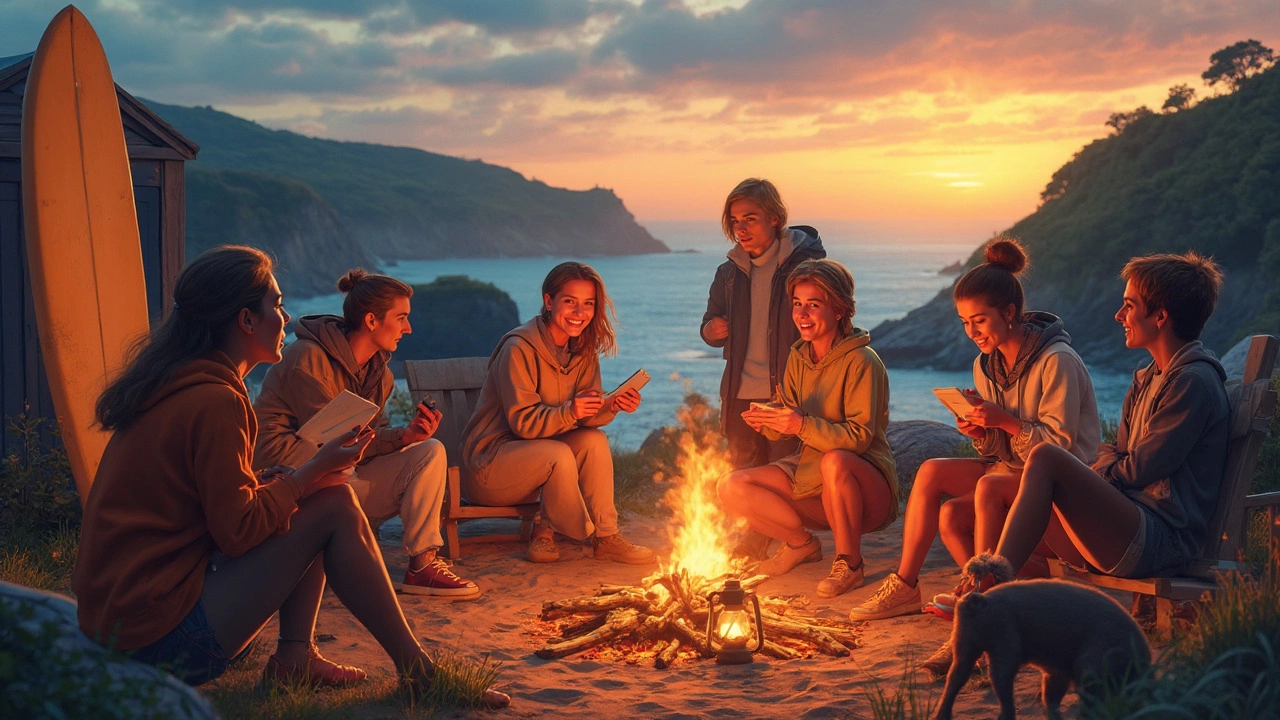
Top Tips for a Great Beach Camping Experience
Nailing your first (or next) beach camping trip comes down to a bit of planning, some weather checking, and knowing what gear actually makes a difference on the sand. Here’s what works, and what every beach camper should know before they scoop sand into their tent.
- Pick the right tent. Regular tents can fill up with sand and condensation fast. Look for tents with plenty of vents and mesh windows. Sand stakes are a total game changer because normal tent pegs just pull out of soft sand.
- Check for permits and rules. Most beach campsites have extra rules about fires, wildlife, and overnight parking. Some beaches, like California State Parks, require advance reservations months in advance. Nothing kills the mood like a ranger telling you to pack up.
- Beat the wind. Beaches get windy. Secure everything—think tent flies, tarps, even your camp stove. Use bags filled with sand if you don’t have beach stakes. Keep your food sealed up to avoid sand in every bite.
- Protect from the sun. You’ll burn so much faster here than in the woods. Pop-up sun shelters, hats, and SPF 50 sunscreen need to be on your must-pack list. Reapply even if it’s cloudy.
- Plan for tides. This one’s huge—always check high tide times. Campsites that look safe may end up under water at 3 AM. A lot of rookie mistakes happen because people forget the ocean has its own schedule.
- Think about critters. Gulls and raccoons are crafty. Store your food in hard-sided bins or locked coolers. A lot of popular spots now require these because of nighttime visits from local wildlife.
- Leave no trace. Beaches show messes quick. Pack in what you pack out, and take care not to leave food scraps, microplastics, or fishing line behind. Most areas crack down hard on littering.
If you’re wondering how popular beach campsites really are, check this out:
| Top U.S. States for Beach Campsites | Average Campsite Booking Window |
|---|---|
| California | 4-6 months ahead |
| Florida | 3-4 months ahead |
| Texas | 2-3 months ahead |
Long story short: the good spots go fast, and beach camping requires gear, prep, and common sense. Get these basics right, and you’ll dodge the usual headaches—and actually enjoy your sleep by the waves.
Staying Safe and Respecting Nature
Beach camping isn’t just about soaking in the views—you’ve got to keep safety and the environment at the front of your mind. The ocean and sun are powerful, and not every part of the coast is as gentle as it looks. Always make sure you check local rules before you set up at any beach campsite; some spots have strict regulations about fires, trash, and where you can put your tent.
Tide charts are a must. Nothing ruins a night like realizing you’ve camped where a high tide will flood your tent at 2 a.m. Safe camping means picking a spot above the high-tide line—which is usually marked by a line of seaweed or driftwood. If in doubt, ask a park ranger or check for local signage.
- Be careful with food. Animals, like seagulls or raccoons, will sniff out anything you leave lying around. Keep food sealed up tight, and don’t feed wildlife (it’s bad for them and can turn into a real hassle for everyone).
- Fires are nice but dangerous. Only ever light one in a designated area, and put it out cold with water—not just sand—before you leave or hit the sack. Many beach camping areas won’t let you have a fire at all, so double-check the rules before sparking up those marshmallows.
- Sun protection isn’t just for swimming. Even hanging around the tent, that ocean sun sneaks up on you. Always have sunscreen, a hat, and long sleeves handy, especially for kids.
Keeping the beach clean really matters. The "pack it in, pack it out" rule isn’t just for the woods. Everything you bring needs to leave with you, even tiny scraps of food or bits of plastic.
| Common Beach Hazards | Tip to Stay Safe |
|---|---|
| Rip currents | Swim near lifeguard towers, know how to escape a current (swim along the shore) |
| Jellyfish and critters | Know local wildlife, avoid touching unknown animals |
| Weather changes | Check forecasts, be ready for wind or rain |
When you respect the beach, everyone has a better time—your group, the next campers, and all that local wildlife. Staying mindful of safety keeps things fun, and following leave-no-trace habits means those perfect beach campsites stick around for next time.
